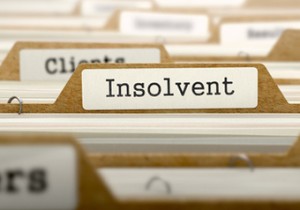Some people when in Bankruptcy will try and abuse the insolvency system or engage in dishonest, reckless or otherwise culpable conduct. To protect against that the Enterprise Act 2002 introduced Bankruptcy Restrictions Orders and Bankruptcy Restrictions Undertakings. The effect of either a Bankruptcy Restrictions Order or a Bankruptcy Restrictions Undertaking is that the restrictions imposed on the bankrupt individual continue to apply, even after the (usual) twelve months discharge period has expired.
Bankruptcy Restrictions Order
If the Official Receiver considers that a bankrupt person has acted dishonestly or is blameworthy in some way, they report the facts to court and ask it to make a Bankruptcy Restrictions Order. The application for a Bankruptcy Restrictions Order must be made before the end of the one year discharge period, unless the court agrees otherwise. The court considers the Official Receiver’s report and any other evidence offered and decides whether it should make a Bankruptcy Restrictions Order and if so, for what period. If such a Bankruptcy Restrictions Order is made the individual will be subject to certain restrictions for the period of time stated in the Bankruptcy Restrictions Order, which can be from two years to fifteen years.
 The normal restrictions apply to all bankrupts up until they are discharged from bankruptcy but if a Bankruptcy Restrictions Order is put in place then the restrictions continue on, even after discharge. The principal restrictions are that you must disclose your status as a person subject to bankruptcy restrictions to any credit provider from whom you wish to get credit of £500 or more; if you wish to continue or commence to do business with others in a different name from that in which you were made bankrupt, you must disclose to those persons the name (or trading style) under which you were made bankrupt; you may not act as the director of a company or take part in its promotion, formation or management unless you apply to the court for permission to do so; you may not act as an insolvency practitioner or as the receiver or manager of the property of a company on behalf of debenture holders and you may not be a Member of Parliament in England or Wales.
The normal restrictions apply to all bankrupts up until they are discharged from bankruptcy but if a Bankruptcy Restrictions Order is put in place then the restrictions continue on, even after discharge. The principal restrictions are that you must disclose your status as a person subject to bankruptcy restrictions to any credit provider from whom you wish to get credit of £500 or more; if you wish to continue or commence to do business with others in a different name from that in which you were made bankrupt, you must disclose to those persons the name (or trading style) under which you were made bankrupt; you may not act as the director of a company or take part in its promotion, formation or management unless you apply to the court for permission to do so; you may not act as an insolvency practitioner or as the receiver or manager of the property of a company on behalf of debenture holders and you may not be a Member of Parliament in England or Wales.
Bankruptcy Restrictions Undertaking
Alternatively, the bankrupt may consent to be bound by a Bankruptcy Restrictions Undertaking which is an agreement between the bankrupt and the official receiver that the bankrupt agrees to the extension of the restrictions until a specified date. The Bankruptcy Restrictions Undertaking is a binding agreement and operates in the same way as the court order. The bankrupt may apply to the court for the Bankruptcy Restrictions Undertaking to be annulled or for it to cease to have effect before the agreed specified date.
The Insolvency Service maintains a register of Bankruptcy Restrictions Orders and Bankruptcy Restrictions Undertakings.
It is important to note that the person subject to a Bankruptcy Restrictions Order or a Bankruptcy Restrictions Undertaking is still discharged from bankruptcy when the twelve months automatic discharge period has expired unless the automatic discharge has been suspended. We will look at this in our next article entitled Suspension of Automatic Discharge from Bankruptcy. Get in touch with us today if you have any questions about debt or Bankruptcy.
